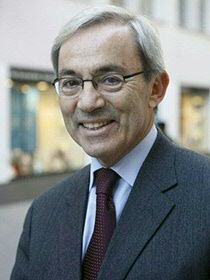Lecture by Nobel Laureate Christopher Pissarides

On Thursday October 10 the Nobel Laureate Christopher Pissarides will give a public lecture in the Aletta Jacobs Hall. This special lecture will be about New technology and the future of jobs and takes place from 17.00h till 18.30h.
Digital technologies and the internet have brought us artificial intelligence, robots, 3D printing and the internet of things. Robots and artificial intelligence are making inroads in labour markets, disrupting existing practices, taking over work from humans and introducing the need for new skills. Nobel Laureate Christopher Pissarides elaborates on the impact of these changes on our jobs. It can confidently be said that they will replace skilled non-manual jobs and increase income inequality. How can governments encourage the development of these technologies and support the transition of workers?
Sir Christopher Antoniou Pissarides is a British-Cypriot economist. He is the School Professor of Economics & Political Science and Regius Professor of Economics at the London School of Economics, and Professor of European Studies at the University of Cyprus. He was a corecipient, with Peter A. Diamond and Dale T. Mortensen, of the 2010 Nobel Prize in Economic Sciences “for their analysis of markets with search frictions.”
Information and tickets
More news
-
19 December 2025
Mariano Méndez receives Argentine RAÍCES award
-
18 December 2025
Why innovate, and for whom?
-
17 December 2025
Ben Feringa wins Feynman Prize
